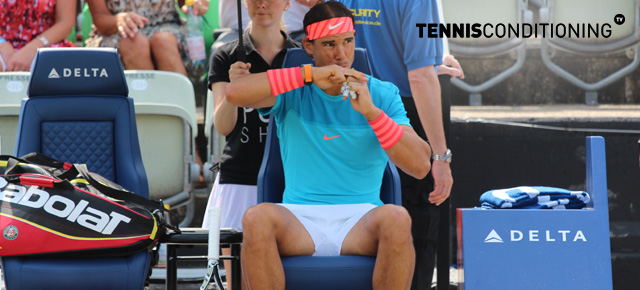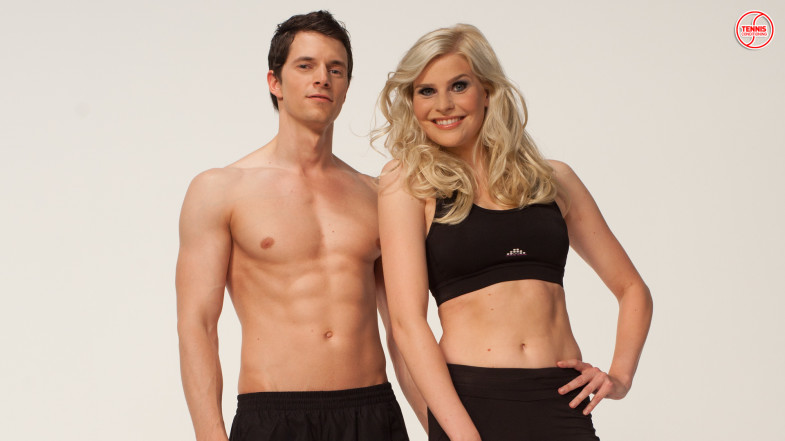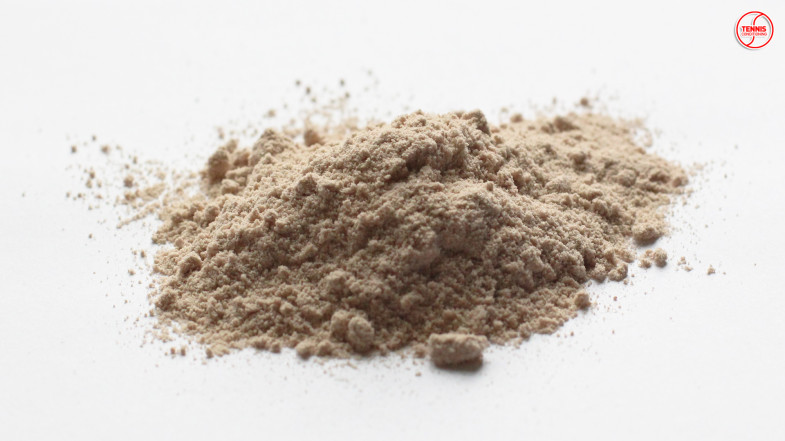You should have a solid understanding of how sports nutrition impacts your performance so you can make choices you are confident in.
What you should eat and drink depends to a large extend what you believe in – for example, are you a vegan or do you prefer a nice burger?
Reality is you will find basically anything in the world of supplements that suits your personal believes or lifestyle choice…and, of course, all that stuff is awesome.
I’m not going to tell you what you should eat in particular nor am I endorsing any supplements. Yet I’m going to provide you with some information regarding sports nutrition and general recommendations in the hope that you’ll be able to make nutrition choices.
What Kind Of Diet Is Best For Athletes?
Broad consensus is following a high carbohydrate/low fat diet can be very beneficial for you since such a diet will provide you with enough energy to perform well on the tennis court.
Now, the majority of the carbs should be in the form of complex carbohydrates because your body gets steady fuel supply for a longer period of time. So green veggies are great and stay away from sodas or fried foods.
When Should You Eat Before A Match?
You have the option to pick foods based on their glycemic index (GI), which classifies foods according to their potential to raise blood glucose levels on a scale from 0 – 100. Foods with a high GI enter the bloodstream as glucose rapidly whereas foods with a low GI take longer.
A GI of 0 – 49 is considered low, 50 – 70 is medium and 71 – 100 is high. For more info and to search for the glycemic index of certain foods check out the University of Sydney website.

Ok, if you pick foods based on the GI, it is recommended that athletes take foods that have a medium glycemic index (50 – 70) at least 1 hour before they walk onto the court so that the nutrients are available when the body needs them.
Should you become very nervous before your matches then you might want to extend that period and ensure that you eat at least 90 minutes prior to match play since digestion slows down as well.
If foods with a high GI (71 – 100) are consumed within 1 hour, it can cause an insulin surge, which, if present at the onset of exercise, may cause a rapid decline in blood glucose levels (hypoglycemia) and early fatigue, which will cause a decrease in performance.
Sports Nutrition: What Your Diet Should Provide

If you take your career seriously and want to perform at your best during tournaments then you must have a practical daily eating plan that emphasizes on:
- providing fuel for your physical activities
- repairing and rebuilding muscle tissue after competition
- optimizing athletic performance during competition
- promoting overall health and wellness
Yet, the best sports nutrition plan doesn’t mean anything if it’s not practical – so take a look at where you can buy good quality groceries, know your budget and start preparing your own food.
If you are completely new to sports nutrition then try out a nutrition plan from a registered dietitian in your area that is tailored to your specific sport nutrition needs.
Sports Nutrition Provides Fuel for Physical Activity
Your diet should provide enough energy so that you can perform well on the tennis court from a physical standpoint.
Yet many athletes take in fewer calories than they need, due to different reasons (e.g. vanity – body needs to look a certain way), which can negatively affect their performance because they don’t have enough fuel in the tank.
Yes, fat is dead weight but not necessarily preventing you from winning matches. There may be other factors that are more important.
Now, some athletes even loose weight throughout the season, which should not happen and here is why. When you loose weight then you also decrease the amount of fuel you have available since your glycogen stores decrease as well as muscle mass.
It isn’t unheard of that athletes restrict carbohydrate intake or even starve yet if you don’t consume enough carbohydrates then your body starts using muscle protein (branch chain amino acids) to replenish glycogen stores, which is not what we want here – we don’t want to loose muscle mass!
Sports Nutrition Repairs & Rebuilds Muscle Tissue

After a tough match or training session you step off the tennis court and your energy stores are depleted, which means your muscle – and liver glycogen stores are low.
Muscle glycogen stores deplete before your liver, which is your gas tank, provides as much glucose as it has. Once the liver runs out of glucose reserves (glycogen), the body will choose to break down muscle protein instead of allowing blood glucose levels to drop too low.
If the body wouldn’t find an alternative fuel source (muscle protein) then ultimately glucose wouldn’t be available and you would fall into a coma because the brain only runs on glucose.
So, in order to supply the body with necessary nutrients, it’s recommended to drink a mixture of carbohydrates and a bit of protein within 30 minutes after training or competition; the carbs/protein ratio should be 2:1 or 3:1.
The carbohydrate/protein mix (e.g. Muscle Milk, Chocolate Milk) aids in the repairing – and building process of muscle tissue, preventing some muscle loss, and reducing delayed onset of muscle soreness (DOMS) by reducing the amount of protein degradation.
Sports Nutrition Supports Athletic Performance

How important nutrition can be in optimizing your performance on the tennis court becomes more evident in endurance events like the Tour de France (~250 hour race).
In the 1990’s the Tour de France was decided by seconds! Wouldn’t you think that during a race that long proper nutrition plays an important role?
The same concept holds true when you want to win tournaments since you have matches going on every other day and you need to win a few in a row a few times per year if you want to make a living playing tennis.
Now, Lance Armstrong’s team allegedly spend ~$12 million annually for his training and doping, analyzing everything, even his urine during different stages of a race, just to determine his absorption rate of various nutrients.
Sounds like they took sports nutrition seriously and so should you!
Why Athletes Need to Eat More

It is important to understand that the nutrition needs of the general population (e.g. your parents) and elite athletes are different!
In the general population, the relationship between body fat percentage (BF%) and the amount of calories consumed is linear (BF% up the more calories consumed) but with elite athletes that relationship is the opposite – the more calories they took in, the less body fat they had and the less calories they took in, the more body fat they had!
Why?
This can occur because when elite athletes don’t consume enough calories, their muscles are wasting in between bouts of exercise, which results in their %BF to increase because they are loosing lean mass.
So, it wasn’t that the athletes were gaining fat – they were loosing muscle. Those athletes that took in more calories were able to preserve their muscles (lean mass) and have less BF%.
Training Zone
In this section we provide you with some more workouts and training tips you may be interested in to optimize your training:


